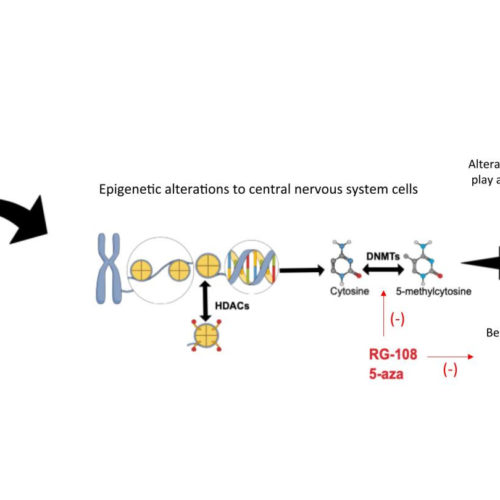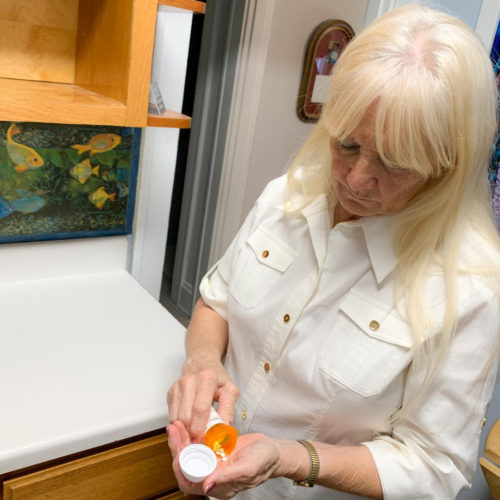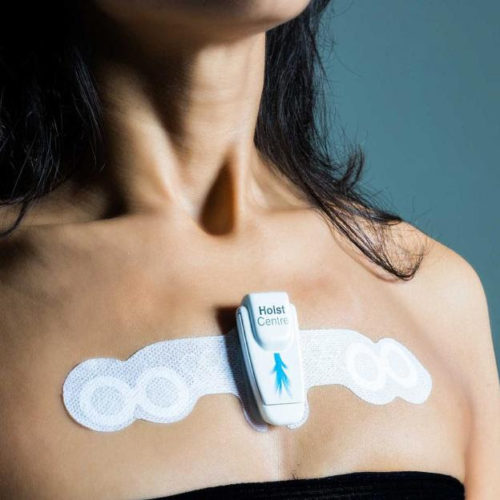by Candy Gibson, University of South Australia Credit: Pixabay/CC0 Public Domain UniSA scientists have developed the world’s first test to accurately predict mood disorders in people, based on the levels of a specific protein found in the brain. Links between low levels of mature brain-derived neurotrophic factor (mBDNF) and depression are well known but, until now,...
Tag: <span>Depression</span>
Metabolism may play role in recurrent major depression
by University of California – San Diego Credit: CC0 Public Domain Researchers at University of California San Diego School of Medicine, in collaboration with Dutch scientists, have found that certain metabolites—small molecules produced by the process of metabolism—may be predictive indicators for persons at risk for recurrent major depressive disorder. The findings were published in the January...
Scientists seek faster route to treat depression
FUNDAÇÃO DE AMPARO À PESQUISA DO ESTADO DE SÃO PAULO IMAGE: THE BRAZILIAN RESEARCH GROUP USED EPIGENETIC MODULATORS TO TRY TO ‘ERASE’ THE DAMAGE DONE BY STRESS TO NEUROPLASTICITY. THE STUDY SHOWED THAT ACUTE INTERVENTION IN EPIGENETIC MECHANISMS PRODUCES ANTIDEPRESSANT-LIKE EFFECTS MORE RAPIDLY THAN CONVENTIONAL DRUGS. CREDIT: FCFRP-USP By Karina Ninni | Agência FAPESP – Treatment...
New promising treatment principle for premenstrual dysphoric disorder (PMDS)
For the first time, a new study shows that treatment with a progesterone receptor modulator is effective for the treatment of typical symptoms such as irritability and depression in women suffering from PMDS. The study, which was conducted at Uppsala University, Karolinska Institute and Umeå University, has been published in the medical journal American Journal...
New use for an old drug: How does ketamine combat depression?
MCGILL UNIVERSITY A group of proteins called 4E-BPs, involved in memory formation, is the key to unlocking the antidepressant effect of ketamine in the brain, according to researchers from three Canadian universities. The discovery could lead to better and safer treatments for certain patients suffering from major depression. Because more than 30% of patients are...
Dallas Heart Study yields new insights about depression
by UT Southwestern Medical Center Sherwood Brown, M.D., Ph.D. Credit: UT Southwestern Medical Center Recently published UT Southwestern research reveals new insights about risk factors for depression based on data from a landmark longitudinal study focused on heart disease. One study, published in the Journal of Clinical Psychiatry, shows a link between an inflammatory molecule in the...
Suffering in silence: two-thirds of older adults say they won’t treat their depression
GENESIGHT MENTAL HEALTH MONITOR IMAGE: AFTER EXPERIENCING DEPRESSION, SAMI SMITH FOUND AN EFFECTIVE TREATMENT WITH THE HELP OF HER PSYCHIATRIST AND THE GENESIGHT TEST, A GENETIC TEST THAT CAN HELP DETERMINE HOW A PATIENT’S GENES MAY IMPACT THEIR OUTCOME WITH CERTAAIN MEDICATION BASED ON THEIR UNIQUE DNA. SALT LAKE CITY, November 16, 2020 – A...
No, your birth control won’t cause depression
by Kristin Samuelson, Northwestern University Women who struggle with mental illness often don’t take the most effective birth control methods because they worry the hormones in these contraceptives can trigger depression and suicide, a myth that has been perpetuated by recent studies. A new Northwestern Medicine study has found hormonal contraceptives—the pill, IUDs, vaginal rings, etc.—do...
An effective way to increase capacity for mental health
UNIVERSITY OF WASHINGTON HEALTH SCIENCES/UW MEDICINE As anxiety and depression rise in the country, primary care clinics, especially in rural areas, are facing increased patient needs. One way to address this is to bolster healthcare providers’ ability to diagnose and treat patients with common mental health disorders. Researchers at UW Medicine found that primary-care physicians...
Depression risk detected by measuring heart rate changes
EUROPEAN COLLEGE OF NEUROPSYCHOPHARMACOLOGY IMAGE: A WEARABLE HEART MONITOR, OF THE TYPE USED IN THE STUDY. For the first time doctors have shown that measuring changes in 24-hour heart rate can reliably indicate whether or not someone is depressed. In practical terms, this may give clinicians an objective “early warning” of potential depression, as well...








